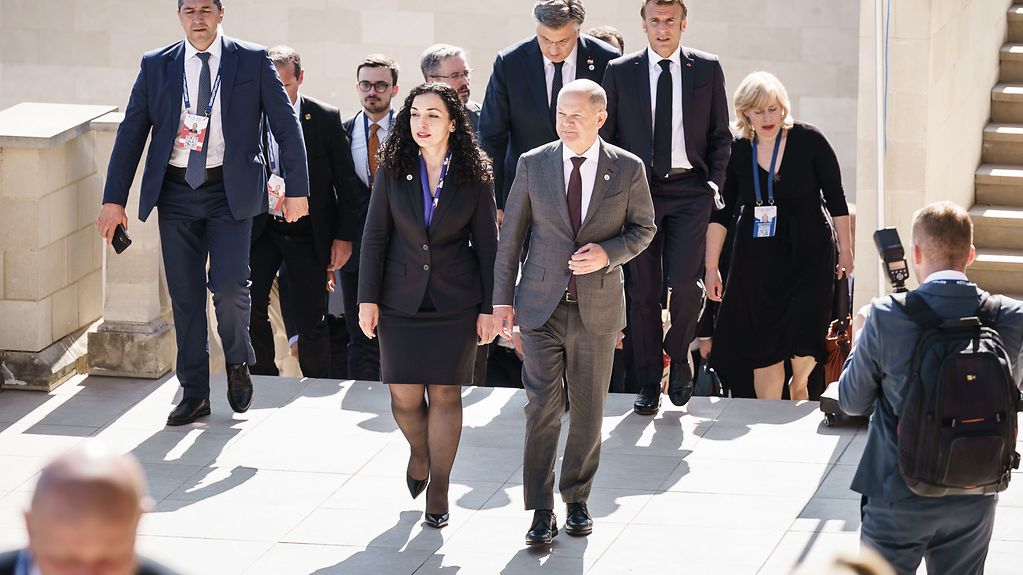Scholz attended the EPC Summit in Chișinău
At the end of the European Political Community Summit, Scholz reiterated that despite certain disputes between individual countries, everyone present was united in the view “that the Russian attack on Ukraine is an attack on European peace and security”.
3 min reading time

More than 45 heads of state and government attended the second EPC Summit in Moldova.
Photo: Federal Government/Denzel
During the closing press conference held in Chișinău in the Republic of Moldova, the Federal Chancellor pointed out that it was indicative of the day’s meeting that Belarus and Russia were not represented, while everyone else was. He added that the Summit was part of a strong tradition characterised by the concept that sovereignty and territorial integrity should be respected and that “peaceful coexistence is of great importance to us in Europe”.
Moldova’s President Maia Sandu and the President of the European Council, Charles Michel, invited 47 heads of state and government of the EU member states and other European states to come to Chișinău. The goal of this exchange was to promote political cooperation in order to strengthen security and prosperity in Europe.
The Federal Chancellor stressed once again: “Together we stand closely by Ukraine’s side. We will not let up and will continue to support Ukraine politically, financially, in terms of humanitarian aid and with arms deliveries."
Scholz continued by saying that the Summit also had symbolic power: “The Republic of Moldova is subjected to continuous destabilisation attempts by Moscow like no other European country, apart from Ukraine.” The great level of solidarity Moldova was demonstrating towards Ukraine was therefore remarkable, the Federal Chancellor said, expressing his gratitude to President Maia Sandu and the Moldavian people.
Removing tension between individual states
The Summit was also linked to a declaration of support for Moldova, Ukraine and in the medium term also Georgia to become members of the European Union, said the Federal Chancellor. The same was true for the six Western Balkan states, where some progress could be observed, Scholz added.
In this context, the Federal Chancellor and the French President Macron held direct talks, aiming to aid the process of alleviating tension between individual states. “We had intense discussions with Armenia and Azerbaijan. We spoke in depth with Kosovo and Serbia.”
Where the European states come together
In addition, the heads of state and government spoke about energy security in Europe, infrastructure and grid development. Cohesion was also helpful in becoming independent of Russian gas imports, the Federal Chancellor pointed out.
Scholz said that he was very pleased, adding that the Summits had proved effective as participants had stayed true to their principles. Talks had been held not only by the European Union and its friends, but by the European states that had come together, said Scholz. “I am also glad that we actually focussed on dialogue. It is a sign of progress for our Europe that this is possible.”
The European Political Community - what is the importance of this forum?
What the Russian war of aggression shows is that a values-based, well-coordinated foreign policy is a prerequisite for a Europe of geopolitical stature. To achieve this status, the European Union will have to broaden its horizons, which it is now doing by holding regular meetings of the heads of state and government of all European countries in the newly established European Political Community Forum (EPC).
As a forum for policy coordination, the EPC does not replace existing organisations, structures or processes, nor does it aim to function as a new one. In particular, it does not serve as a substitute for the EU accession process. This meeting was the second EPC Summit. The first Summit took place in Prague on 6 October 2022.
Further questions and answers about the European Political Community (EPC) can be found here.